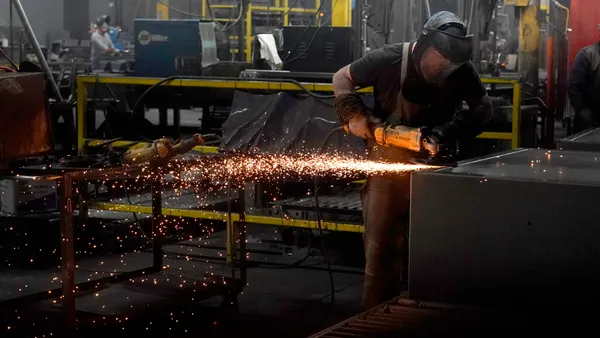While more employers have voiced interest in skills-first hiring, credential use is still deeply uneven in the hiring process — meaning employers have an opportunity to widen their talent pools and value credentials appropriately, a Workcred study released Aug. 16 indicates.
The study focused on manufacturing employers and related credentials, in part due to this industry’s rising skills crisis. Workcred’s study cites research from Deloitte and the Manufacturing Institute, stating that while 3.5 million manufacturing jobs may be needed over the next decade, a skills mismatch may prompt more than 2 million of those jobs to go unfilled. And the industry also faces a coming retirement wave, putting further pressure on talent acquisition professionals, the study noted.
Multiple studies confirm that “manufacturing facilities are impacted by digitization at every point along the value chain,” the report said, noting that digitization’s impact will a vary according by industry sub-sector. “This change will require workers to be trained to use these new digital tools. It will also require employers to develop workforce planning and recruitment strategies that are agile and capable of finding individuals with the right skills sets.”
Credentials may not signal value yet
The study concluded that many manufacturers don’t view credentials as “the most relevant” tools to find new workers and that many did not know or understand the nature of these credentials and whether they would add value, such as reduced cost of talent acquisition or reduced training time.
This contrasts with manufacturers’ continued investment in training, meaning many employees are extensively skilled without a way to showcase or validate those skills, the report said.
Employees and company leaders interviewed mentioned that a lack of “readily available information” on credentials limited their value; supervisors said they relied on recommendations regarding the value of such credentialing; and many still signified a desire to see such skills proven in an employee’s work.
While credentials signaled experience and relevant skills, on-the-job work was still the key way most verified workers’ abilities, the report said.
Upskilling more mindfully is a solution
Employers also indicated a lack of tracking of such credentialing internally, as well.
Workcred’s report recommended that employers capture formal training with credentialing, such as digital badges, to signify the kind of skills each worker has earned on the job. Job descriptions, as well, should be retooled to indicate what kind of credentials and skills the company values and needs, as that can be a useful sign for both workers and educators in what kind of skills are needed in the current market.
“If employers clearly signal the skills and competencies they value in job descriptions, and regularly update them, credential issuers will have a trusted source from which to get this information,” researchers said.













